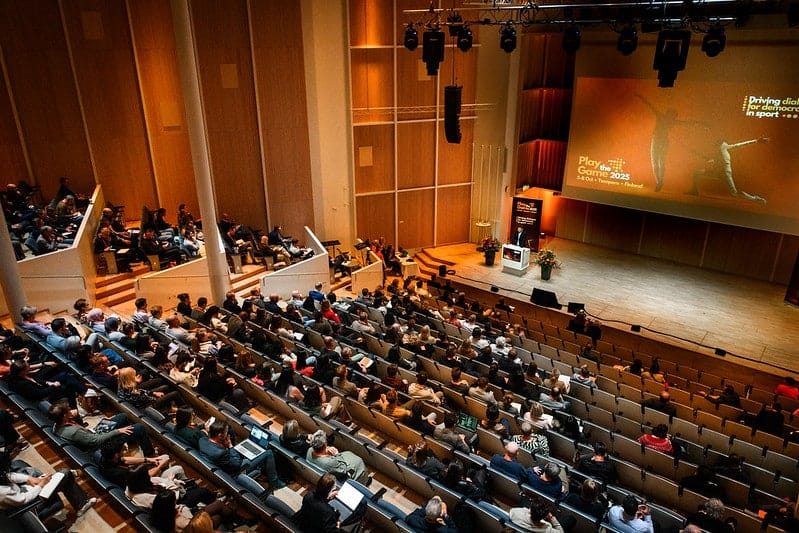I’m sitting in a lecture hall in Tampere, listening to a professor showing a bar chart about corruption within international sports federations. Around me, people nod in recognition. There’s talk about FIFA, the IAAF, the Olympics and their endless struggle for credibility. I’m taking diligent notes – but also waiting, just a little, for something familiar.
But the word handball never comes up.
It’s almost comical. Here, at Play the Game – the conference where the dark sides of sports are analyzed, dissected, and debated for days – there’s room for every imaginable discipline. Except the one I care about most. Sure, Professor Klaus Nielsen from Denmark and Zsolt Havran from Hungary mention handball in the context of financial collapse among handball clubs, but otherwise, there’s complete silence about handball throughout the conference.
This isn’t a criticism of the conference. Quite the opposite. It’s inspiring, well-organized, and filled with people who genuinely want to make a difference in sport. But it still says something about handball’s place in the world of sports politics – or rather, how small that place is.
Because handball has its own challenges. Governance, match-fixing, financial issues – they’re there. They’ve been there for a long time. The only difference is that we rarely talk about them. In football, the problems are global. In handball, they become… local. Almost private. As if we’d rather keep them within the family.
Why is that?
Criticism easily becomes personal
We have the same structures, the same risks, sometimes even the same patterns. But while football gets headlines, reports, and debate shows, handball is content to look the other way. Maybe it’s about size. Maybe it’s about culture. Or maybe it’s because, in handball, we still like to think of ourselves as a sport where “everyone knows everyone” – and where criticism, therefore, easily becomes personal.
I’m here thanks to a grant from the Swedish Sports Journalists’ Association, and I’m very grateful for that. Since it’s my first time, I’m here as a participant, not a speaker. I listen, reflect, and, when there’s an opportunity, ask questions. And somewhere between all the lectures about FIFA and the IOC, I start to think that handball should be part of this conversation.
Because even if the sport is smaller, it doesn’t mean it matters less. We have a lot to gain by daring to talk about our own problems – before someone else does it for us.
Next year, I hope to be back at Play the Game. And maybe – if someone gives me ten minutes and a microphone – to talk a little about handball’s role in the political world of sport. Or at least remind people that handball faces enormous challenges.
